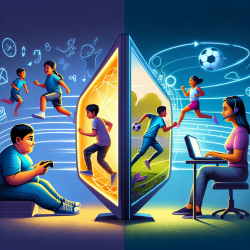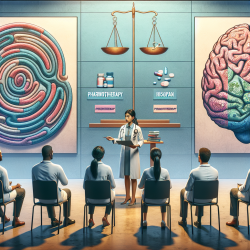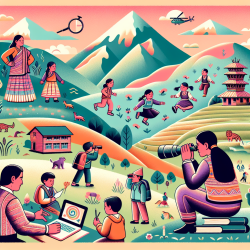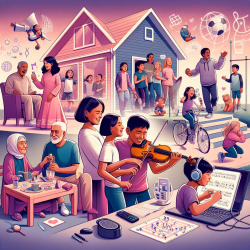Introduction
As we strive to create inclusive and effective healthcare environments, the importance of understanding and addressing the needs of sexual and gender minority (SGM) populations becomes paramount. The research article, "First year medical student experiences with a clinical skills seminar emphasizing sexual and gender minority population complexity," provides valuable insights into how medical education can evolve to better prepare practitioners for diverse patient interactions.
Understanding the Research
The study evaluated first-year medical students' experiences during a novel seminar designed to enhance their clinical skills, particularly in addressing the needs of SGM populations. The seminar included discussion questions, peer role-plays, and interviews with standardized patients (SPs) who identified as SGM, providing authenticity and lived experiences to the learning process.
Key Findings
The research identified two primary themes:
- SGM Bias: Students noted biases among faculty and SPs, emphasizing the need for faculty development to ensure a supportive and knowledgeable teaching environment.
- Adaptive Expertise in Clinical Skills: Complex SP cases promoted cognitive integration, preparing students for real-world clinical challenges. However, variability in faculty expertise and support impacted learning outcomes.
Implications for Practitioners
For practitioners, the study underscores the importance of embracing complexity in clinical training to foster adaptive expertise. Here are some actionable steps:
- Engage with Diverse Experiences: Incorporate SPs with lived SGM experiences into training to provide authentic learning opportunities.
- Promote Faculty Development: Encourage faculty to undergo training to better understand and address SGM health issues, reducing biases and enhancing teaching quality.
- Encourage Cognitive Integration: Use complex case scenarios to challenge students, promoting deeper understanding and problem-solving skills.
Encouraging Further Research
While the study provides valuable insights, it also highlights areas for further research. Understanding why some students thrive in complex learning environments while others struggle can help tailor educational strategies to individual needs. Additionally, exploring the long-term impact of such training on patient care outcomes will be crucial.
Conclusion
By integrating complex SGM scenarios into medical education, we can better prepare future practitioners to provide competent and compassionate care to diverse populations. The lessons learned from this study have broader implications for clinical skills teaching and health professions education.
To read the original research paper, please follow this link: First year medical student experiences with a clinical skills seminar emphasizing sexual and gender minority population complexity.










